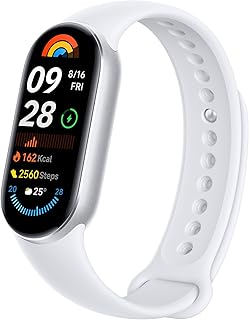As the much-debated GPS Week Number Rollover approached on April 6th, 2019, concerns arose about potential impacts on various GPS devices. This phenomenon stems from the way GPS systems initially tracked time, with a counter that reset every 1024 weeks, or about 19.7 years. The rollover, occurring on April 6th, could potentially disrupt date/time-related functions on older devices, such as timestamps and sunrise/sunset data.
With the impending rollover, fears were stoked by sensationalist media coverage, reminiscent of the Y2K scare. Although some devices may be affected, major fitness and sport device manufacturers reassured users of their products’ compatibility. Garmin, Fitbit, Polar, Suunto, and TomTom all confirmed that their sport/fitness/outdoor devices were compliant and not expected to face issues due to the rollover.
Garmin, a prominent player in the GPS device market, clarified that while the vast majority of their fitness/outdoor devices were unaffected, potential issues might arise with non-fitness products like automotive or marine devices. Other leading brands like Fitbit, Polar, Suunto, and TomTom also confirmed the compatibility of their sport-focused devices.
While concerns loomed over the possibility of disruptions, particularly with older GPS units, the consensus was that newer devices were unlikely to experience any significant issues. Companies like Garmin emphasized that even in rare cases where a device might be incompatible, it would primarily affect date-related functions rather than positioning accuracy.
As the GPS Week Number Rollover date arrived, reports from users varied. Some noted minor glitches or unusual behavior in their devices, while others reported no discernible impact on their fitness activities. Despite isolated incidents like data resets and display anomalies, the overall consensus was that modern fitness and sport devices performed satisfactorily during and after the rollover.
While the rollover event sparked discussions and anecdotes within the GPS user community, the broader impact seemed limited to specific cases involving older or less common devices. The episode served as a reminder of the intricate technology behind GPS systems and the ongoing efforts by manufacturers to ensure the reliability and functionality of their products.
With the rollover event behind us, the focus shifted back to the daily use of GPS devices for fitness and outdoor activities. Users could now engage in their runs, rides, and workouts with confidence, knowing that their trusted GPS watches and trackers were designed to withstand such system transitions without significant disruptions.
📰 Related Articles
- Garmin Dominates 2025 Handheld GPS Market with Top Devices
- Best Handheld GPS Devices for Outdoor Navigation Reviewed
- Augmented Reality Boosts Fitness for Older Adults, Study Finds
- runDisney Marathon Weekend: Fitness, Family, and Magical Memories
- Weighted Vests: Experts Debate Benefits for Fitness and Health






